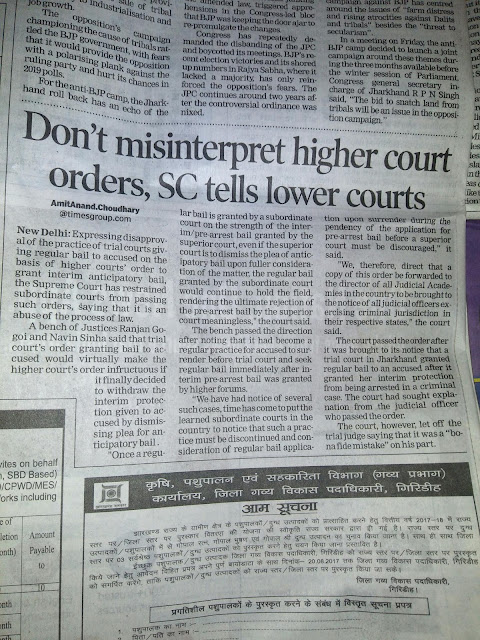राज्य सरकार ने शुरु की तत्काल सेवा, 10 कार्य दिवस अंदर जारी किये जा सकेगें जाति, स्थानीय निवास एवं आय प्रमाण पत्र
== राज्य सरकार ने झारसेवा पोर्टल पर तत्काल सेवा प्रांरभ की है। जिसके तहत अब दायर होने वाले आवेदनों के विरुद्ध 10 कार्य दिवस के अन्दर जाति, स्थानीय निवास एवं आय प्रमाण पत्र निर्गत किये जायेगें। इस संबंध में श्रीमती निधि खरे, प्रधान सचिव कार्मिक ने कहा कि झारखण्ड सरकार द्वारा जाति, स्थानीय निवास एवं आय प्रमाण पत्रों आदि कि निर्गमन हेतु झारसेवा पोर्टल पर ‘तत्काल सेवा‘ प्रारंभ की गई है। इस संबंध में उन्होंने सभी उपायुक्तों को निदेष दिया है कि आवेदकों को तत्काल सेवा के तहत ही निर्धारित समयावधि में प्रमाण पत्र निर्गत किया जाना सुनिष्चित किया जाये। श्रीमती खरे ने कहा कि तत्काल सेवा को अत्यंत आकस्मिकता के मामलों को निष्पादित करने हेतु प्रारंभ किया गया है।अतः यह सुनिष्चित किया जाये कि छात्र-छात्राओं को यथा अर्हता प्रमाण पत्र सुलभ करा दिये जाये। श्रीमती खरे ने कहा कि झारखण्ड राज्य सेवा गांरटी अधिनियम के अन्तर्गत जाति/स्थानीय निवासी/आय प्रमाण पत्र की सेवा उपलब्ध कराने हेतु अधिकत्तम समय सीमा 30 कार्य दिवस निर्धारित है।किंतु कई बार ऐसा देखा गया है नियोजन/नामाकंन/सरकारी योजनाओं के मामले में स

